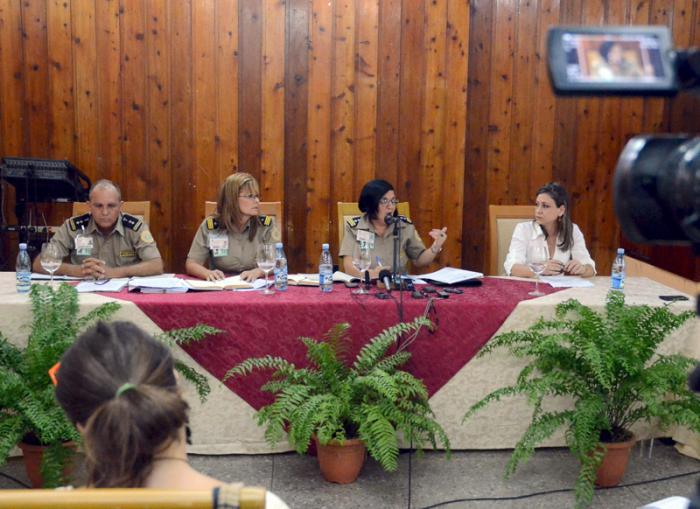The General Customs of the Republic (AGR) of Cuba and the Ministry of Finance and Prices (MFP) released four new resolutions, which will go into effect September 1, 2014, in order to regulate non-commercial imports entering the country.

Regulations (206, 207, 208 of the AGR and 300 of the MFP), which revoke those implemented in 2011, establish limits to determine the commercial character of imports made individuals traveling via any mode of transportation.
They establish, additionally, limits on the quantity of items or products which can enter the country, allowing customs to identify for-profit imports and carry out their confiscation.
"These modifications were made after a study on the practical application of the resolution implemented in 2011," explained Idalmis Rosales Milanés, deputy director of the AGR, in a press conference.
Milanés said that imports valued at 1000 pesos and shipments of 200 pesos will continue, as well as the duty exemption for household items imported by participants in international missions; personal effects; and 10 kilograms of medicine; among other traveler rights.
She highlighted that in 1979 imports of a non-commercial character were defined in Cuba, a standard international practice, and for the first time in 2011 Customs was authorized to establish the commercial character of an import or shipment.
"The fate of abandoned or confiscated products is established by the resolution; for example, the Ministry of Public Health is responsible for the distribution of medicines among its health centers and the Ministry Domestic Commerce for the distribution of miscellaneous items."
Yahily García Pompa, head of the MFP’s Department of Customs Policy, explained that it was necessary to reform the norms which until recently regulated value and quantity, with adjustments bearing in mind what the General Customs of the Republic have established.
Responding to questions from the press about the rights of Cubans serving in international missions, Carmen Arias Suárez, said, "Collaborators are subject to the same regulations established for individuals and, after working for two or more years, may import only once an indivisible set of household goods.
According to Jorge Jiménez Cabrera, Head of Terminal Three at José Martí International Airport, Havana, the measure will only affect a small percentage of Cuban travelers, given that the majority of passengers arriving to Cuba experience no incidents in regards to their luggage, saying, "The objective of the resolution is to avoid and prevent corruption."















